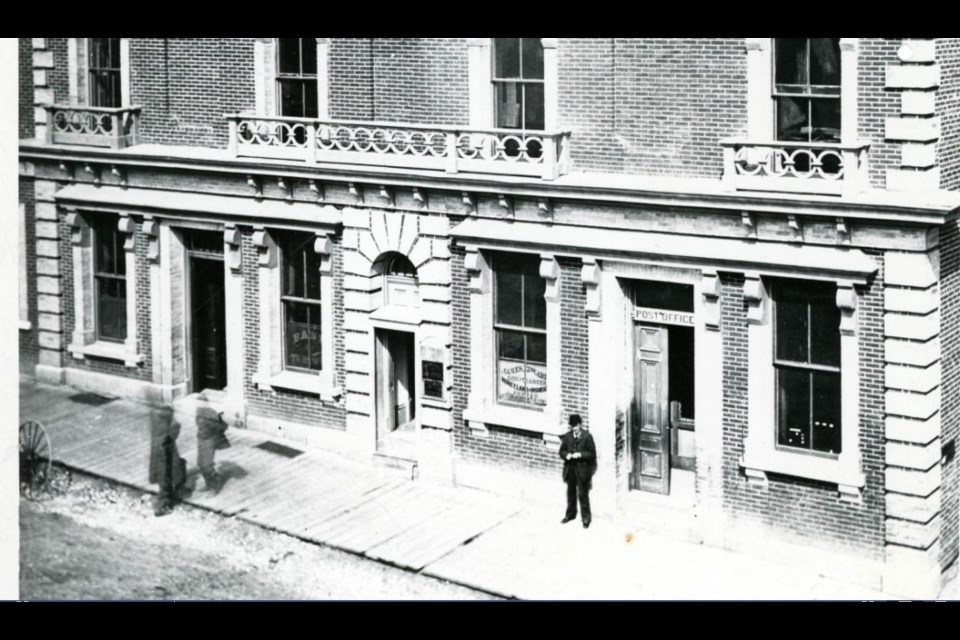Editor's note: To read Part 1, click here.
Sheriff, high constable, jail governor, county detective. Our experience with Hollywood movies leads us to believe that these fellows were knee deep in hands-on law enforcement every day, wrangling the bad guys on dusty trails or doggedly pursuing their quarry through darkened town alleys.
Sometimes, this was true but the man with the title was often a bit of a figurehead, someone near retirement age who had a long history of military or political service in the community. He was awarded with a position, often held until the time of his death, where he could expect to sit in a comfortable office and sign writs, warrants and other assorted orders for the rest of his days.
A position like that can be the ideal thing for a man of advancing years if he has a staff of experienced law enforcement personnel to physically enforce these orders in his name. That was not always the case.
The Barrie Jail could be a terrifying place. The 24 original cells only featured 18 beds which meant that a number of inmates slept on the floor in hallways. Soon, the cells meant for one inmate were holding two of them. A governor’s residence was added to the Barrie Jail, only to be unofficially annexed to hold yet more unfortunates.
On occasion, the number of jail residents who could be classed as criminals were in the minority. Before other facilities dedicated to mental health, old age or poverty were constructed, the jail was the only available sanctuary in the county.
The governor of the jail had his hands full overseeing an overcrowded facility containing a diverse mix of troubled humanity. He was expected to rely on a staff of two, a turnkey (jail guard) and a matron. If the Governor thought he had accepted a desk job, he would soon learn otherwise.
In 1924, Dr. J.J.D. Banting, well known veterinarian of the esteemed Banting family, took the governor’s office. His right-hand man was John Rankin Weaymouth, who acted as turnkey in the facility for 25 years.
Banting’s term ended in 1931 when he was 70 years old. This was not a planned retirement but the result of injuries he received while helping Weaymouth battle a pair of desperate criminals who had broken free within the jailhouse. Governor Banting suffered a fractured skull, among other injuries, and never fully recovered. He died two years later.
I imagine Dr. Banting at least received a salary of some sort which is more than can be said for High Constable Joseph Rogers who began his service to Simcoe County in 1864.
He, too, was a man of standing. Rogers was an experienced military man, court bailiff, and former employee of both the Land Registry and the Post Office.
For the first decade of his high constable position, he did the work for next to no pay. He was expected to cover all of Simcoe County, nearly 5,000 square kilometres, without a salary. Eventually, Rogers complained about his situation and managed to get $250 a year for his troubles, a sum that he famously said would hardly cover the cost of keeping his horse.
The whole constable system was a bit of a shambles in those early years. Yes, there were deputy constables all over the county, stationed in their home townships, but all were untrained and none answered to Rogers. Despite being high constable, his position did not allow him to command the deputies. They were a separate branch and basically policed themselves.
In the 1880s, Rogers gathered some local constables and farmers together to form a posse. Local folks had become fed up with a particular gang of outlaws who had been robbing and raiding in their community.
The posse succeeded in pushing the gang straight out of the county but no one received a penny for their efforts. At that time, the fee system allowed $1.50 for each arrest, of which there were none in this case. This also meant that no incurred expenses could be claimed either.
Yet, Joseph Rogers performed the duties of high constable for 50 years and only gave it up when his eyesight began to fail.
Each week, the Barrie Historical Archive provides BarrieToday readers with a glimpse of the city’s past. This unique column features photos and stories from years gone by and is sure to appeal to the historian in each of us.



